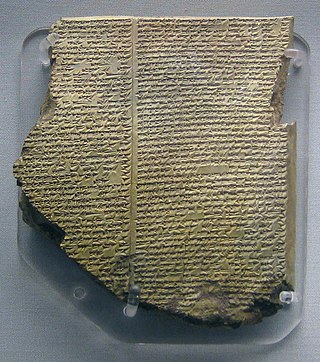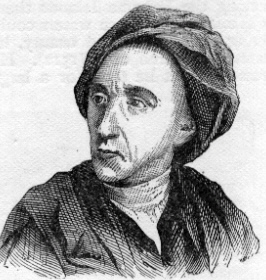Related Research Articles

Sir Derek Alton Walcott was a Saint Lucian poet and playwright. He received the 1992 Nobel Prize in Literature. His works include the Homeric epic poem Omeros (1990), which many critics view "as Walcott's major achievement." In addition to winning the Nobel Prize, Walcott received many literary awards over the course of his career, including an Obie Award in 1971 for his play Dream on Monkey Mountain, a MacArthur Foundation "genius" award, a Royal Society of Literature Award, the Queen's Medal for Poetry, the inaugural OCM Bocas Prize for Caribbean Literature, the 2010 T. S. Eliot Prize for his book of poetry White Egrets and the Griffin Trust For Excellence in Poetry Lifetime Recognition Award in 2015.

An epic poem, or simply an epic, is a lengthy narrative poem typically about the extraordinary deeds of extraordinary characters who, in dealings with gods or other superhuman forces, gave shape to the mortal universe for their descendants.

John Keats was an English poet of the second generation of Romantic poets, with Lord Byron and Percy Bysshe Shelley. His poems had been in publication for less than four years when he died of tuberculosis at the age of 25. They were indifferently received in his lifetime, but his fame grew rapidly after his death. By the end of the century, he was placed in the canon of English literature, strongly influencing many writers of the Pre-Raphaelite Brotherhood; the Encyclopædia Britannica of 1888 called one ode "one of the final masterpieces". Jorge Luis Borges named his first encounter with Keats an experience he felt all his life. Keats had a style "heavily loaded with sensualities", notably in the series of odes. Typically of the Romantics, he accentuated extreme emotion through natural imagery. Today his poems and letters remain among the most popular and analysed in English literature – in particular "Ode to a Nightingale", "Ode on a Grecian Urn", "Sleep and Poetry" and the sonnet "On First Looking into Chapman's Homer".

Robert Southey was an English poet of the Romantic school, and Poet Laureate from 1813 until his death. Like the other Lake Poets, William Wordsworth and Samuel Taylor Coleridge, Southey began as a radical but became steadily more conservative as he gained respect for Britain and its institutions. Other romantics such as Byron accused him of siding with the establishment for money and status. He is remembered especially for the poem "After Blenheim" and the original version of "Goldilocks and the Three Bears".

The Epic of Gilgamesh is an epic poem from ancient Mesopotamia. The literary history of Gilgamesh begins with five Sumerian poems about Bilgamesh, king of Uruk, dating from the Third Dynasty of Ur. These independent stories were later used as source material for a combined epic in Akkadian. The first surviving version of this combined epic, known as the "Old Babylonian" version, dates back to the 18th century BC and is titled after its incipit, Shūtur eli sharrī. Only a few tablets of it have survived. The later Standard Babylonian version compiled by Sîn-lēqi-unninni dates from the 13th to the 10th centuries BC and bears the incipit Sha naqba īmuru. Approximately two-thirds of this longer, twelve-tablet version have been recovered. Some of the best copies were discovered in the library ruins of the 7th-century BC Assyrian king Ashurbanipal.

The Nibelungenlied, translated as The Song of the Nibelungs, is an epic poem written around 1200 in Middle High German. Its anonymous poet was likely from the region of Passau. The Nibelungenlied is based on an oral tradition of Germanic heroic legend that has some of its origin in historic events and individuals of the 5th and 6th centuries and that spread throughout almost all of Germanic-speaking Europe. Scandinavian parallels to the German poem are found especially in the heroic lays of the Poetic Edda and in the Völsunga saga.

"Ulysses" is a poem in blank verse by the Victorian poet Alfred, Lord Tennyson (1809–1892), written in 1833 and published in 1842 in his well-received second volume of poetry. An oft-quoted poem, it is a popular example of the dramatic monologue. Facing old age, mythical hero Ulysses describes his discontent and restlessness upon returning to his kingdom, Ithaca, after his far-ranging travels. Despite his reunion with his wife Penelope and his son Telemachus, Ulysses yearns to explore again.
Mock-heroic, mock-epic or heroi-comic works are typically satires or parodies that mock common Classical stereotypes of heroes and heroic literature. Typically, mock-heroic works either put a fool in the role of the hero or exaggerate the heroic qualities to such a point that they become absurd.

John Abraham Heraud (1799–1887) was an English journalist and poet. He published two extravagant epic poems, The Descent into Hell (1830), and The Judgment of the Flood (1834). He also wrote plays, and travel books.

The Dunciad is a landmark, mock-heroic, narrative poem by Alexander Pope published in three different versions at different times from 1728 to 1743. The poem celebrates a goddess Dulness and the progress of her chosen agents as they bring decay, imbecility, and tastelessness to the Kingdom of Great Britain.

Suhma Kingdom was an ancient state during the Late Vedic period on the eastern part of the Indian Subcontinent, which originated in the region of Bengal. The kingdom included present day districts of Midnapore and parts of Hoogly and Howrah. This kingdom was mentioned in the epic Mahabharata along with its neighbouring kingdom Prasuhma.
Nationality words link to articles with information on the nation's poetry or literature.

Dietrich von Bern is the name of a character in Germanic heroic legend who originated as a legendary version of the Ostrogothic king Theodoric the Great. The name "Dietrich", meaning "Ruler of the People", is a form of the Germanic name "Theodoric". In the legends, Dietrich is a king ruling from Verona (Bern) who was forced into exile with the Huns under Etzel by his evil uncle Ermenrich. The differences between the known life of Theodoric and the picture of Dietrich in the surviving legends are usually attributed to a long-standing oral tradition that continued into the sixteenth century. Most notably, Theodoric was an invader rather than the rightful king of Italy and was born shortly after the death of Attila and a hundred years after the death of the historical Gothic king Ermanaric. Differences between Dietrich and Theodoric were already noted in the Early Middle Ages and led to a long-standing criticism of the oral tradition as false.

Germanic heroic legend is the heroic literary tradition of the Germanic-speaking peoples, most of which originates or is set in the Migration Period. Stories from this time period, to which others were added later, were transmitted orally, traveled widely among the Germanic speaking peoples, and were known in many variants. These legends typically reworked historical events or personages in the manner of oral poetry, forming a heroic age. Heroes in these legends often display a heroic ethos emphasizing honor, glory, and loyalty above other concerns. Like Germanic mythology, heroic legend is a genre of Germanic folklore.
Agnes Bulmer was an English poet. She is believed to have written the longest epic poem ever written by a woman. The piece, Messiah's Kingdom, took over nine years to complete.

Hester Rogers was a British Methodist writer.

The Fall of Nineveh is a long poem in blank verse by Edwin Atherstone. It consists of thirty books preceded by a Prelude. The poem was written over many years and published 1828–1868. It tells of the battles and events during the war between the coalition of Medes and Babylonians against the Assyrians.
Charles Rathbone Low (1837–1918) was a British officer of the Indian Navy and writer.
References
- ↑ Agnes Bulmer 18th at Century Religion, Literature, and Culture.
- ↑ Richard Watson Dixon, Bulmer, Agnes at Dictionary of National Biography, 1885-1900, Volume 07.
- ↑ Andrew O. Winckles, The Book of Nature and the Methodist Epic: Agnes Bulmer's Analogic Poetics and the End(s) of Romanticism.
- ↑ Herbert F. Tucker, Epic: Britain's Heroic Muse 1790-1910, p. 284.
- ↑ British Magazine and Monthly Register of Religious and Ecclesiastical Information, Parochial History and Documents Respecting the State of the Poor, Progress of Education, &c., Vol. III, 1833, p. 585.
- ↑ The Methodist Magazine and Quarterly Review, XV (New series IV), 1833, p. 473-477.